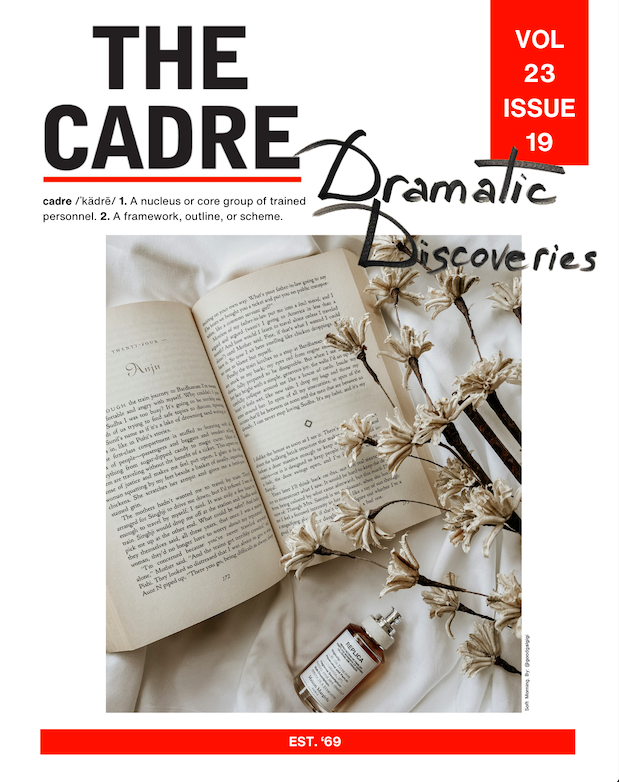By: Nick Scott
When I saw the Cadre article on the “2018 UPEISU ELECTION PROFILES†I was excited to read it. While I’m familiar with most of the candidates, being out of the country for the whole semester, I haven’t had the opportunity to hear them speak in-person, go to the SU Debates. (Yes, I know it was livestreamed, but ain’t nobody got the time for that). With that being said, I’m more than a bit disappointed by how the candidates have been written about in this article.
First off, the idea of the Cadre’s panelists providing endorsements of who they consider to be the fittest candidates for each position, to me, was a bit off-colour. Sure, big newspapers like the Washington Post or the Globe and Mail provide endorsements for big elections, but let’s be very clear – Meryl Streep and Tom Hanks will not be co-starring in a remake of the Post for our modest university publication anytime soon.
Regardless of when this is posted, before or after the election is over, the nature of this article falls in line with others published by the Cadre over the last little while, covering individuals involved or running for Student Union positions. I have found these articles to be favoritistic, skewed, and mislabeled. And in the words of the great RuPaul Andre Charles, ‘Girl, You Better Step It Up.â€
Let me back my argument up.
First off, there was the Executive Report Cards from back in the Fall of 2017, which were more than a bit problematic. In particular, Hammad Ahmed’s (the former President) and Megan Rix’s (the current VPSL) reports stood out. To pick one example from many, the editors finished Rix’s report by writing, “Rix will keep on keepin’ on, but if this first semester is any indication, don’t expect much to stand out.â€
Regardless of what you think of an executive, this statement was unprofessional, disrespectful, and mean. This is pointed out in a letter to the editor written by Sarah MacDonald and Morin Mawhinney, who criticized the reports for many valid reasons. One issue that both registered was that “the report cards read more like opinion pieces rather than unbiased, fact-based journalism.â€
I’d say the same of this latest piece published by the Cadre. Is it opinion, or fact? In the beginning of the article, the editors state that “The Cadre interviewed each executive candidate to talk about their platform and challenged them on their understanding of the issues they would face if elected.†The use of the term ‘profile’ seems to suggest some sense of equal treatment of the different candidates. Furthermore, aside from the article being posted in the opinion section of the Cadre (which I’m guessing most people wouldn’t even realizing, having accessed this article from Facebook) there is no clear allusion within the article to this being an opinion piece, a point which I’ll come back to.
While this piece is not derogative, for the most part, in my mind it doesn’t objectively portray the different candidates’ positions, strengths, and weaknesses. And while any first-year philosophy student can say “but what IS objectivity, what IS truth? Foucault writes that…†I feel safe in saying that most students would like to see at least some attempt to portray the different candidates in a fair and relatively objective manner.
What stood out most to me in these profiles was the lack of a balance between the portrayal of Emma Drake and Sweta Daboo as candidates for the VPAX position. Unsurprisingly, all of the editors endorsed Emma for the position, (while two endorsed both Emma and Sweta) and this endorsement is evident in how they write about the two candidates.
From their descriptions, Sweta is a suitable candidate, while Emma is an excellent fit. Sweta claims that she will do certain things, while Emma plans on doing them. Putting aside the praise they lavish on Emma, and the patronizing corrections they make to Sweta’s objectives, even the adjectives and the verbs that are used to describe these two candidates inevitably nudge the reader towards selecting Emma as the suitable candidate. Two of the endorsements may have been split between Emma and Sweta, but the profiles certainly don’t seem to reflect any indecision between the two.
Perhaps you are familiar with arguments that took place during the last U.S. presidential election about whether or not it is appropriate for a debate moderator to correct the debaters when they’re incorrect. (An especially relevant argument when talking about the so-called ‘post-truth’ world.) Below are two articles providing different opinions on the matter.
- https://www.usnews.com/opinion/articles/2016-09-23/the-job-of-a-debate-moderator-is-to-moderate-not-fact-check
- https://www.vox.com/2016/9/26/13063004/real-time-fact-checking-debate-trump-clinton
Personally, it believe it inappropriate for a moderator to fact-check and correct debaters. Intentionally or unintentionally, it can lead to the moderator advantaging one candidate over the other, affecting the outcome of the debate. During debates, there are many media outlets that fact-check in real-time, or after the debate. And while you could certainly argue that these outlets (Fox, WaPo, NYT, Breitbart, CNN) ‘fact-check’ in ways that favour one candidate over the other, couldn’t you say the exact same thing of the moderator?
In a similar sense, I would hope that the editors of the Cadre would be a bit more careful in their assessment of candidates, councillors, executives, and so forth in the future, or in the very least that they would begin to label such pieces as opinion, and not as objective, factual articles.
As in the “Check Your Facts Fam†response to MacDonald and Mawhinney’s post, I’m sure that if there’s a response to this letter, part of it will be that “the article is posted in the Opinion section so ¯\_(ツ)_/¯†but come on… let’s get real.
First off, in the Cadre’s own editorial policy, Section 3.5.2, it states that “The Cadre will include disclaimers for the following types of content: All letters and opinion pieces, to clarify that the views and opinions expressed in the article are those of the authors and do not necessarily reflect the official position of The Cadre.†I didn’t see any disclaimer for this piece, not at the beginning, nor at the end, as was done with MacDonald and Mawhinney’s piece, which began with the title “Letter to the Editor†and concluded with the disclaimer that “The views expressed in this letter are those of the authors and are not necessarily shared by The Cadre.â€
Furthermore, it is common policy for many newspapers to put “OPINION†somewhere before the title of the article. Considering that this was done for MacDonald and Mawhinney’s article (Letter for the Editor:…), one would hope that the Cadre would apply the same criteria to their own editors’ opinion pieces, especially considering that it is not clear what sections articles belong to unless you access them from the website. (Does anyone access articles from the Cadre’s website?)
With that in mind, I call on the Cadre to issue a correction to the article on the different candidates’ profiles, due to this article breaching the Cadre’s own editorial policy on how opinion pieces should be published. Furthermore, in the future, I hope that the Cadre clearly states in the titles of such pieces that they are opinion pieces, and that it includes disclaimers attesting to this within the article.
This article belongs to The Cadre’s opinion section. The views and opinions expressed in this article are those of the author and do not necessarily reflect the views of The Cadre.
Photo: UPEI






